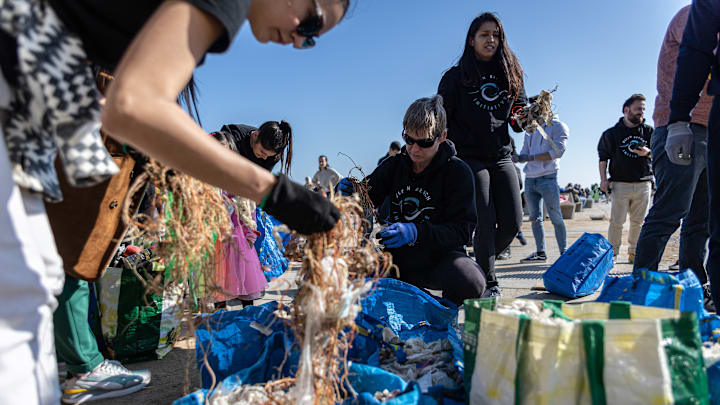For centuries, sailors have passed long hours out on the open water by turning elements of nature into beautiful art. From aboard whaling ships came scrimshaw, a folk art tradition that turned whale teeth and bones into intricate carved objects. Whalers etched detailed scenes of maritime life, the exciting chases for their prey, and portraits of their sweethearts, presidents, and family members on sperm whale teeth. (Now, sperm whales are a protected endangered species and it’s illegal to possess or sell their parts; scrimshanders today carve replica teeth made out of resin.)
Sailors also collected delicate seashells from their voyages around the South Pacific and made “sailors’ valentines.” The shells were glued in a colorful arrangement inside an octagonal frame and given as gifts to sweethearts upon the mariners’ return from their voyages. Historians have also uncovered clues suggesting that many sailors’ valentines were likely produced by women in Barbados and purchased by American sailors just before arriving home.
These incredible artifacts are stunning souvenirs, but they’re not exactly sustainable or environmentally conscious. The design incubator Studio Swine, however, has paid homage to this maritime tradition by repurposing old trash pulled from the ocean to create similar works of art.
Even out in the middle of the ocean—where the closest other people might be the ones in orbit—human-made plastic abounds. It’s difficult to assess the total amount of plastic of every size and type in the oceans, but a 2015 study in the journal Science estimated that in just the year 2010, roughly 8 million metric tons entered seas around the world. For a project called Gyrecraft, a team from Studio Swine collected a fraction of this plastic and melted it down to a malleable medium using their on-board solar extruder. Check out the mini-documentary on the project from National Geographic above.
A version of this story was published in 2015; it has been updated for 2023.
